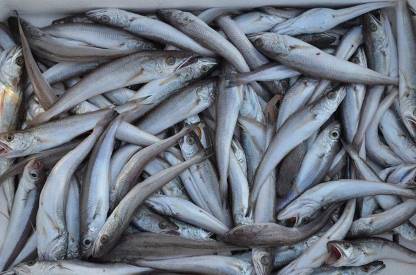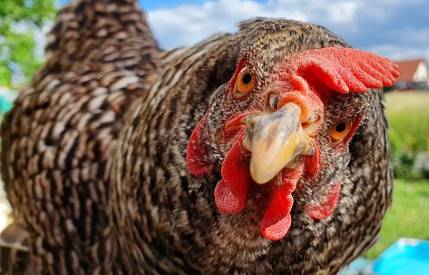As a long-time chicken owner and self-confessed poultry enthusiast, I’m always looking for ways to enrich the lives and diets of my feathery friends. One question that repeatedly comes up in my chicken-raising circle is, can chickens eat fish? The short answer is yes, they can, and it could be a beneficial addition to their diet.
Understanding the nutritional needs of chickens is vital to ensuring their overall health, happiness, and egg-laying capabilities. And while most of us rely heavily on commercial chicken feed, supplementing their diet with protein-rich treats like fish can offer some benefits. But it’s essential to tread carefully, as improper feeding practices can lead to problems.
In this article, we’ll delve deeper into this topic, exploring the nutritional benefits of fish for chickens, safety precautions, and the best ways to incorporate fish into their diet. Whether you’re a seasoned chicken owner or just starting your poultry journey, this article is meant to shed light on a possibly fishy yet beneficial aspect of chicken nutrition.

Understanding the Dietary Needs of Chickens
If you’ve ever cared for chickens, you know how important their diet is. Their health, egg-laying capacity, and overall well-being hinge on their nutritional intake.
Basic Nutritional Requirements of Chickens
Chickens need a balanced diet to thrive. This includes sufficient protein for muscle development and feather growth, plus essential vitamins and minerals for overall health. These nutritional building blocks are crucial, from calcium for strong eggshells to vitamin A for proper eyesight.
Common Sources of Nutrients for Chickens
Most chicken owners rely on commercial chicken feed specifically formulated to meet a chicken’s nutritional needs. Yet, supplementing this with kitchen scraps, garden produce, and insects found during free-ranging can add variety and additional nutrients to their diet.
[ChickenAffiliate]
Can Chickens Eat Fish: The Short Answer
Let’s address the question head-on. Can chickens eat fish? Yes, they can. And it’s not just that they can eat it. Fish can be a beneficial addition to their diet.
Is Fish Safe for Chickens?
Some misconceptions about chickens eating fish exist. Concerns range from health issues to the belief that eggs will taste fishy. But in moderation and with proper preparation, feeding fish to chickens is not only safe, but it can also be beneficial.
Benefits of Feeding Fish to Chickens
Fish is an excellent source of protein, which is vital for chickens. Furthermore, it’s packed with Omega-3 fatty acids, which benefit chicken’s heart health and egg production.
Precautions When Feeding Fish to Chickens

While fish can be an excellent supplement to a chicken’s diet, certain precautions are necessary.
Potential Risks of Feeding Fish to Chickens
Raw fish may harbor harmful bacteria, so always cook it before feeding. Also, beware of fish bones and scales that may present choking hazards. Finally, be mindful of potential contaminants or toxins in some fish species.
Avoiding Overconsumption
Too much of a good thing can be a problem. Excessive fish can lead to an unbalanced diet and potential health issues. It’s important to balance fish with other food sources, treating it as a supplement rather than the main course.
Proper Ways to Prepare Fish for Chickens
A bit of preparation goes a long way when feeding fish to chickens.
Cooking Methods for Fish
Boiling is the safest and simplest way to cook fish for your chickens. It ensures any harmful bacteria are killed. Baking, however, is a more nutrient-preserving method, though it requires a bit more effort.
Removing Potential Dangers
Before serving, ensure the fish is bone and scale-free. Also, always check the freshness and quality of the fish. Chickens can get sick from spoiled fish, just like humans.
Integrating Fish into Your Chickens’ Diet

Once you’ve decided to introduce fish to your chickens’ diet, how do you go about it?
Frequency of Feeding Fish to Chickens
Fish should not replace the staple diet of your chickens but rather supplement it. It can be an occasional treat or a protein boost during molting season.
Experimenting with Different Fish Varieties
Not all fish are created equal. Some are safer and more beneficial for chickens than others. Researching and experimenting with different fish varieties can help optimize the benefits your chickens receive.
Observing Chickens’ Reactions to Fish

Finally, remember every chicken is unique. Just like people, they have their likes and dislikes.
Gauging Chickens’ Acceptance of Fish
Some chickens may immediately take to the new menu item, while others may be more hesitant. Monitor their eating behavior to ensure they accept this new food source and aren’t under any stress during feeding times.
Signs of Problems or Health Issues
Keep a keen eye on any potential health issues. Symptoms of overconsumption may include changes in droppings, loss of appetite, or decreased egg production. If these symptoms persist, it may be best to consult a vet or reduce the fish in their diet.
Monitoring for Potential Allergic Reactions
Though rare, chickens can have allergic reactions to new foods. Look out for unusual behavior, difficulty breathing, or swelling. In such cases, discontinue the fish immediately and consult with a veterinarian.
What Other Seafood Can Chickens Eat?

While we’ve established that fish can make a nutritious addition to a chicken’s diet, you might be wondering about other types of seafood. Let’s dive deeper and explore other sea-dwelling creatures you might consider sharing with your feathered friends.
Shrimp
Believe it or not, chickens can eat shrimp! This seafood delight is a great source of protein and can make an exciting change to their diet. But remember, cooking the shrimp thoroughly is crucial to kill any potential bacteria. And if you’re treating your chickens with shell-on shrimp, consider crushing the shells to avoid any risk of choking.
Read More: Can Chickens Eat Shrimp? Exploring Seafood Delights
Salmon
Salmon, like most fish, is absolutely fine for chickens to eat. It’s rich in Omega-3 fatty acids, which contribute to a chicken’s overall health and enhance the quality of its eggs. Salmon should be cooked and deboned, just like any other fish. However, be aware of potential mercury levels in larger fish like salmon, and make it an occasional treat rather than a regular meal.
Read More: Can Chickens Eat Salmon? Unraveling The Mystery Of Seafood
Tuna
Tuna is another suitable fish for chickens. It’s packed with protein and various nutrients. However, it’s worth mentioning that you should opt for canned tuna in water, not oil, and ensure it’s low in sodium. Over-consumption of salt can lead to health issues in chickens.
Read More: Can Chickens Eat Tuna? Unveiling The Truth And Risks
Minnows
Small fish like minnows can be a great treat for chickens. If you have a pond or nearby water source to catch fresh minnows, you can offer them to your chickens, but make sure they’re safe to eat. Like other fish, ensure they’re cooked properly to kill potential parasites or bacteria.
Read More: Can Chickens Eat Minnows? 5 Great Benefits
Frequently Asked Questions About Chickens Eating Fish
Can I feed my chickens commercial fish meal?
Absolutely. Commercial fish meal can be a convenient way to incorporate the nutritional benefits of fish into your chickens’ diet. It’s usually dried and ground into powder, making mixing with their usual feed easy. Just make sure the product you choose is high quality and free from additives that could harm your flock.
Does feeding fish to my chickens affect the quality of their eggs?
Yes, it can. Fish, particularly oily types like salmon, are rich in Omega-3 fatty acids, which can improve the nutritional quality of the eggs your chickens lay. However, remember that moderation is key – fish should be a supplement to a balanced diet, not the main component.
How can I ensure that the fish I feed my chickens is sustainably sourced?
Great question! It’s always important to consider the environmental impact of our choices. Look for fish products certified by bodies like the Marine Stewardship Council (MSC), which ensures the fish are sustainably sourced. Also, opt for locally sourced fish to reduce your carbon footprint.
Are there any diseases my chickens can get from eating seafood?
While fish and other seafood can be safe and nutritious for chickens when prepared properly, raw or poorly cooked seafood can potentially harbor bacteria and parasites. This could lead to diseases like salmonella or worms. Always ensure the seafood you feed to your chickens is thoroughly cooked and fresh.
Can the flavor of eggs change if my chickens eat fish?
Some chicken owners report a slightly different, often described as “fishy,” taste in the eggs of chickens that eat a lot of fish. However, this doesn’t happen in every case, and feeding fish in moderation shouldn’t dramatically affect the flavor of your chickens’ eggs.
Can all types of chickens eat fish?
Yes, all types of chickens can safely consume fish. However, individual chickens, like people, have different tastes. Some might love the new menu item, while others might show little interest. Always observe your chickens’ reactions when introducing a new food item into their diet and adjust accordingly.
Can chickens eat fish – final thoughts
The world of chickens is a little more adventurous than you might’ve thought! To answer the question – chickens can eat fish, and with careful planning and consideration, it can become a fantastic addition to their usual grub.
Fish presents a valuable source of protein and omega-3 fatty acids, helping keep your feathered friends in peak condition. Just remember to cook the fish thoroughly, remove any choking hazards like bones, and serve it as a supplement rather than replacing their regular diet.
Whether your hens take to this seafood delight straight away or need a little coaxing, remember every chicken is an individual with unique tastes. Keep a close eye on their reactions and adjust their diet accordingly.
